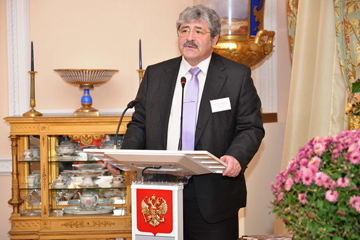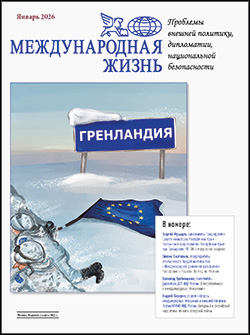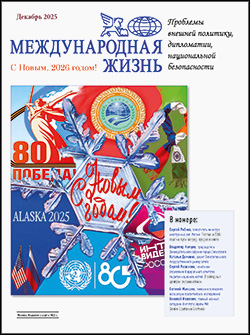Mr. Ambassador,
Dear ladies and gentlemen, dear friends!
I am grateful to you all for coming here to participate in this conference.
Our magazine is one of the oldest brands of Russian magazines of modern times. Its first edition appeared in March of 1922. It is worth mentioning, that a few months later in the same year, Foreign Affairs magazine was first published in the US, and very shortly afterwards, International Affairs magazine was published in London. Strange as it may seem, there was a kind of exchange of opinion and correspondence between them at the beginning. That’s why some articles covering the politics of Soviet Russia were sent to the members of the International Affairs editorial board.
Naturally, the question arises, why should all of these formats, devoted exclusively to the subject of foreign affairs, have emerged at this particular moment in history.
In the aftermath of the First World War, one of the most profound in history, followed by Revolution in Russia, thoughtful people found themselves in a deeply perplexing state, facing a world full of irrational, unpredictable forces that influenced, if not actually governed humanity.
Reflecting those experiences and anxieties about growing instability, a new level and a new quality surfaced, of those engaged and responsible for shaping national foreign policies. New media projects were launched focusing precisely on the analysis of inter- state and international affairs.
In a sense, today we are feeling something in common with the generation of that time. A financial crisis of unprecedented nature and the Arab Revolution urge us forward in yet another effort to seek answers to the very complex but inevitable questions and challenges. I am convinced it would be much more productive if we join our efforts and do this together.
The dramatic changes in The Middle East and North Africa have not only drastically changed the regional political landscape, but in a very short period of time they have become an important factor in world politics.
We are aware of the cause, but we may have different viewpoints. Some of us will obviously speak about the factor of civilization. In this connection, I want to refer to a prominent American, Mr. Marshal Hodgson, a professor at Chicago University, who wrote a famous manuscript (because it is more than 1000 pages long) entitled the “Venture of Islam.” Summing up, he wrote that we should learn to respect the traditions of others, and then they will start to respect our traditions.
And one more and final reference to a modern British writer, Ian McEwan:
I hope that we will have a successful and fruitful debate.
Thank you for your attention.
Читайте другие материалы журнала «Международная жизнь» на нашем канале Яндекс.Дзен.
Подписывайтесь на наш Telegram – канал: https://t.me/interaffairs

 13:22 20.11.2013 •
13:22 20.11.2013 • 






















